Thailand is world-famous for its beaches, temples, and cuisine—but in 2025, it’s also gaining recognition as a leader in sustainable hospitality. A new wave of eco hotels and green resorts are redefining the meaning of travel, offering not only comfort but also purpose. These properties aren’t simply adopting eco-friendly practices—they’re building systems that regenerate, reduce, and respect.
Whether you’re a Western eco-traveler, a digital nomad, or a local adventurer, these ten eco hotels in Thailand show that sustainability and luxury can co-exist. From rainforest bungalows to carbon-neutral city stays, this list is your roadmap to conscious travel across the Land of Smiles.
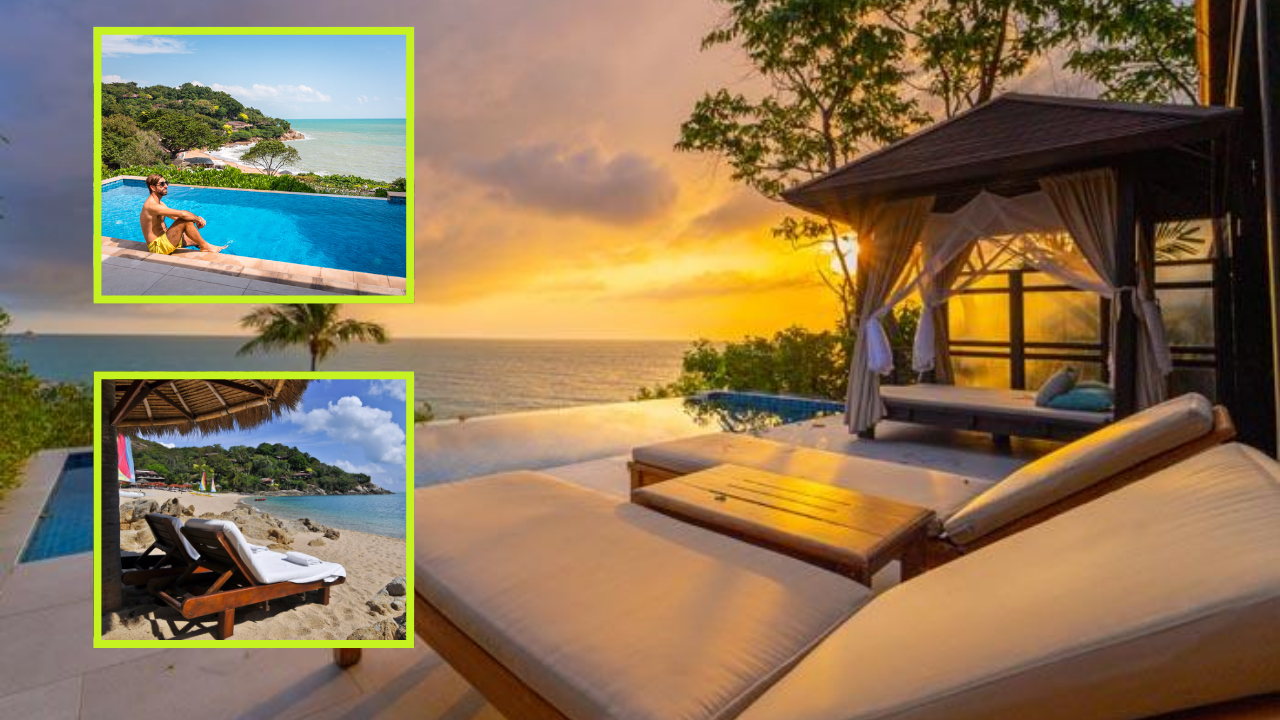
1. The Tongsai Bay – Koh Samui
Located on a private bay in Koh Samui, The Tongsai Bay is Thailand’s original eco-resort. Since 1987, it has adopted a “green first” approach—well before sustainability was trendy. No trees were cut to build the villas, and all rooms use refillable amenities, rainwater harvesting, and solar hot water systems.
Green Practices:
- Non-toxic biodegradable cleaning products
- Greywater recycling for landscaping
- Organic gardens supplying the restaurant
- No plastic bottles or straws anywhere on site
Booking Tip: Book directly through Tongsai Bay’s website to access their eco-packages, which include nature walks and beach clean-up activities.
“Long before others caught on, Tongsai Bay was proving that true luxury is rooted in environmental harmony.”
— Nattaya Songwattana, Green Leaf Foundation
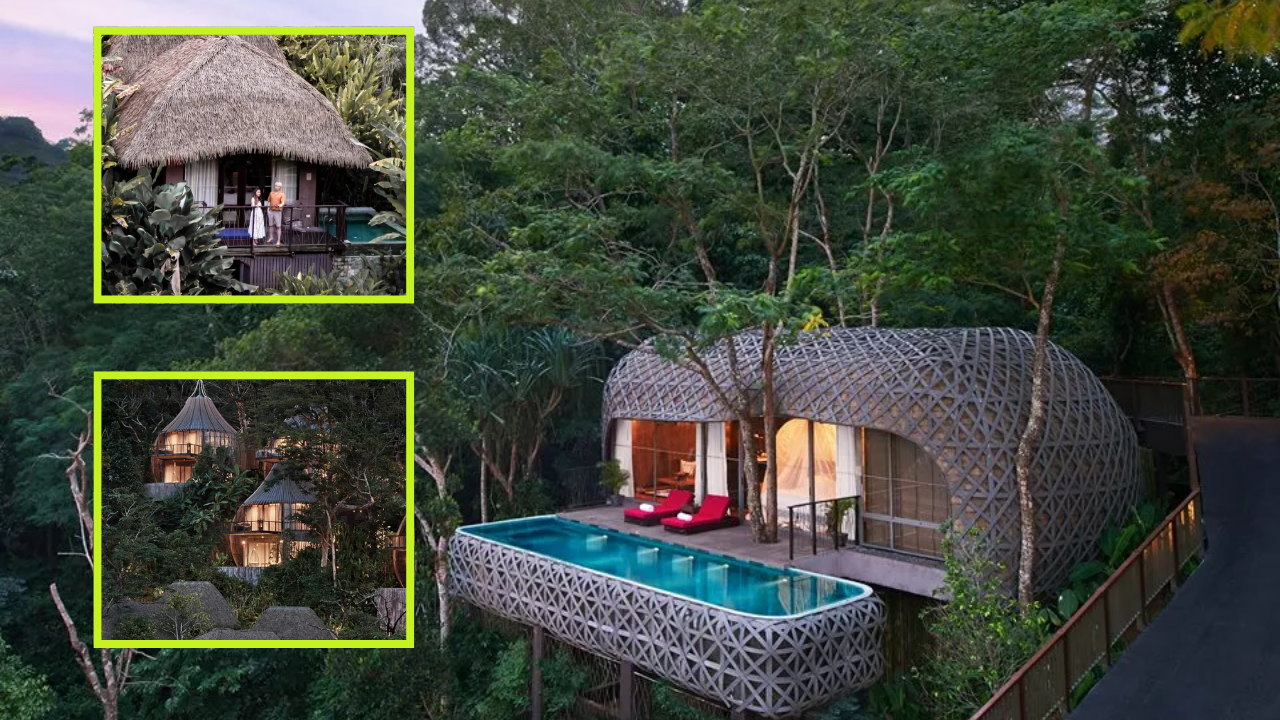
2. Keemala – Phuket
Keemala is an architecturally striking resort set above the hills of Kamala Beach. It’s famous for its thatched “Bird’s Nest” villas, and equally renowned for its deep environmental integration.
Green Practices:
- Comprehensive composting system
- No single-use plastics
- Herbal gardens & farm-to-table restaurant
- Locally sourced building materials
The resort actively supports animal welfare (no elephant rides here) and employs local hill tribe communities to preserve Phuket’s cultural roots.
Booking Tip: Don’t miss their guided forest bathing and organic spa experiences designed to connect guests with nature.
Learn more: Keemala’s sustainability page

3. Soneva Kiri – Koh Kood
Soneva Kiri, nestled on the secluded island of Koh Kood, is Thailand’s most ambitious sustainable resort. Soneva pioneered waste-to-wealth initiatives and set global standards for zero-waste hospitality.
Green Practices:
- On-site Eco Centro for recycling, composting, and glass-blowing
- All electricity powered by solar and biomass
- Wastewater treated and reused
- Zero plastic across operations
The Soneva Foundation supports clean water access and reforestation across Southeast Asia.
Booking Tip: Opt for the “Eco Suite” to receive a behind-the-scenes tour of their sustainability operations.
“Soneva shows what’s possible when hospitality and innovation are aligned toward the planet.”
— Dr. Harold Goodwin, Responsible Tourism Partnership

4. Paresa Resort – Phuket
Nicknamed the “Heaven of All Heavens,” Paresa is built on the cliffs of Kamala without disturbing the natural rock formation. Sustainability is embedded in the architecture and daily operations.
Green Practices:
- Low-impact design maximizing natural airflow
- Solar-heated water systems
- Organic Thai cuisine with a low carbon footprint
- Limited construction footprint and local hiring
Booking Tip: Book the Ocean Pool Suite for a passive-cooled space with a sea breeze as your A/C.
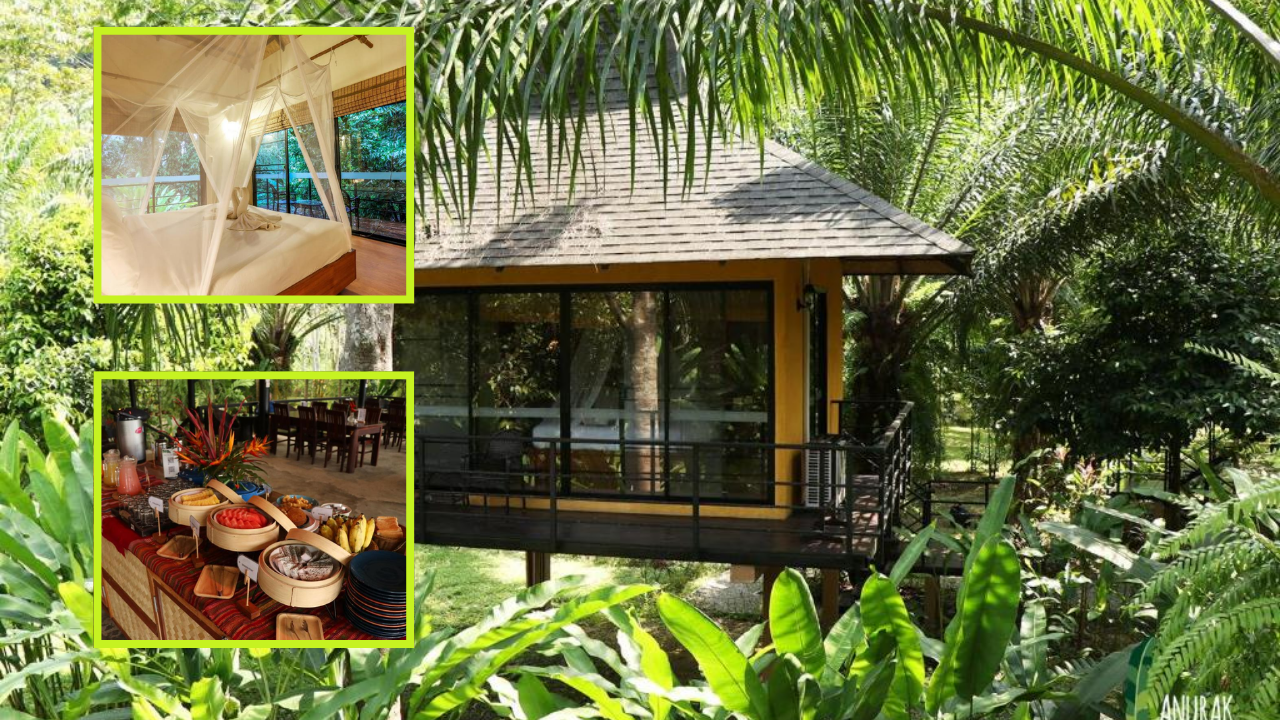
5. Anurak Community Lodge – Khao Sok
If you want to experience real jungle life while supporting local communities, Anurak Community Lodge is your destination. Located on the edge of Khao Sok National Park, this lodge is both rustic and responsible.
Green Practices:
- Rainwater harvesting and filtration
- Bamboo and thatched-roof bungalows
- Local tour guides trained in conservation
- Responsible trekking and reforestation tours
Booking Tip: Check out their “Rainforest Rising” program and contribute to a tree-planting effort during your stay.
Website: Anurak Lodge Sustainability

6. Raya Heritage – Chiang Mai
Raya Heritage is where sustainable design meets cultural preservation. Everything from the building material to the furniture is sourced from northern Thailand’s traditional artisan communities.
Green Practices:
- Recycled wood and handmade materials
- Low-energy lighting systems
- No single-use amenities
- Eco-cleaning and greywater reuse
Their restaurant, Khu Khao, uses seasonal, organic produce from nearby farms and hill tribes.
Booking Tip: Ask about their “Cultural Immersion” workshops that support local craftspeople.
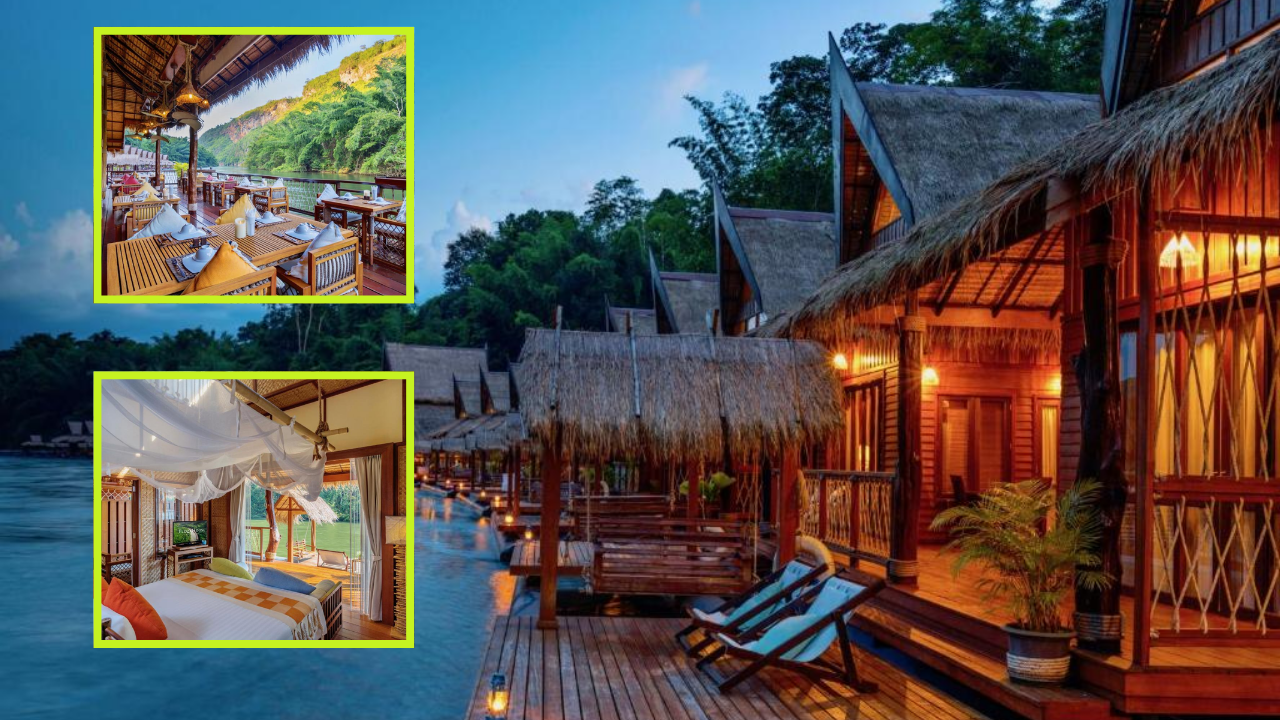
7. The Float House River Kwai – Kanchanaburi
Floating on the historic River Kwai, this eco-resort uses its location to minimize land impact and maximize connection with water and forest.
Green Practices:
- Floating bungalows made from certified wood
- Natural airflow and light minimize energy use
- Solar lighting
- Direct support of Mon ethnic communities
Booking Tip: Book the Mon Cultural Package to take part in traditional dances and sustainable farming experiences.
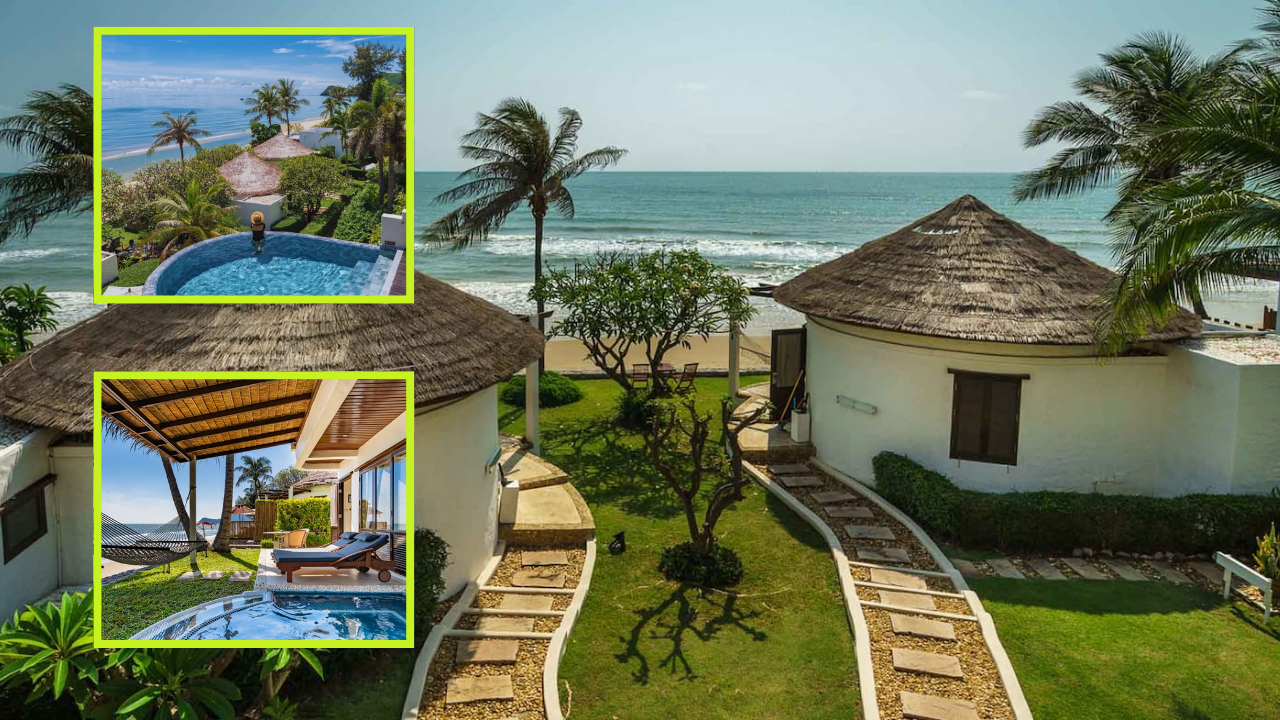
8. Aleenta Hua Hin Resort – Pranburi
Aleenta is one of Thailand’s few carbon-neutral resorts. With wind turbines, solar installations, and a commitment to plant-based menus, it’s both futuristic and grounded.
Green Practices:
- Pure Blue Foundation for marine conservation
- Vegan and vegetarian menu options
- Renewable energy-driven operations
- Community outreach in sustainable farming
Booking Tip: Their monthly ocean clean-up weekends offer guests a way to directly contribute.
Foundation Info: Pure Blue Foundation

9. Bangkok Tree House – Bangkok
Yes—eco-living in Bangkok is possible. The Bangkok Tree House is a floating, solar-powered escape in Bang Krachao, a green oasis often called Bangkok’s “lung.”
Green Practices:
- Plastic-free across all operations
- Bamboo, recycled wood, and reused oil drums in design
- Zero electricity grid dependence
- Ocean waste cleanup (1 kg per booking)
Booking Tip: Bring insect repellent and reusable bottles—nature is real here.
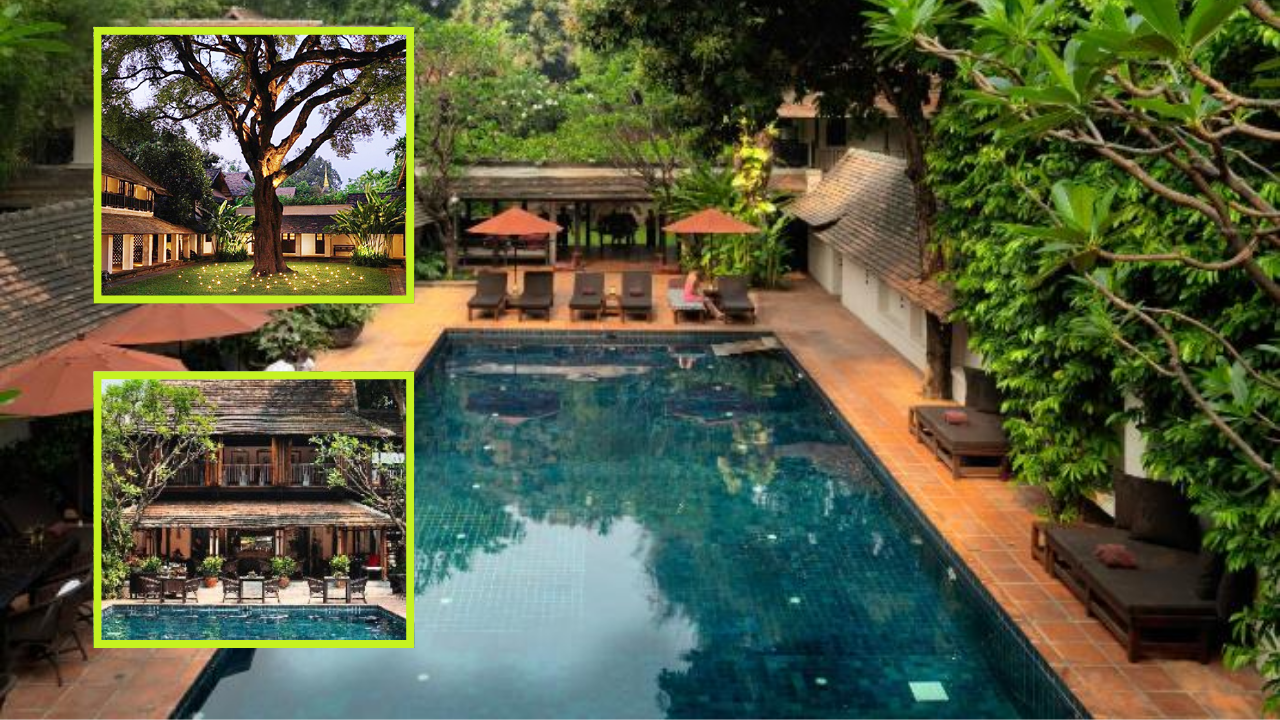
10. Tamarind Village – Chiang Mai
This boutique hotel blends Lanna heritage architecture with strong green commitments. Located in Chiang Mai’s Old City, it’s walking distance to temples and markets.
Green Practices:
- No plastic policy
- Low-flow water systems
- Staff hired from nearby villages
- Cultural programs that directly fund local cooperatives
Booking Tip: Time your visit with their craft festivals to support ethnic artisans.
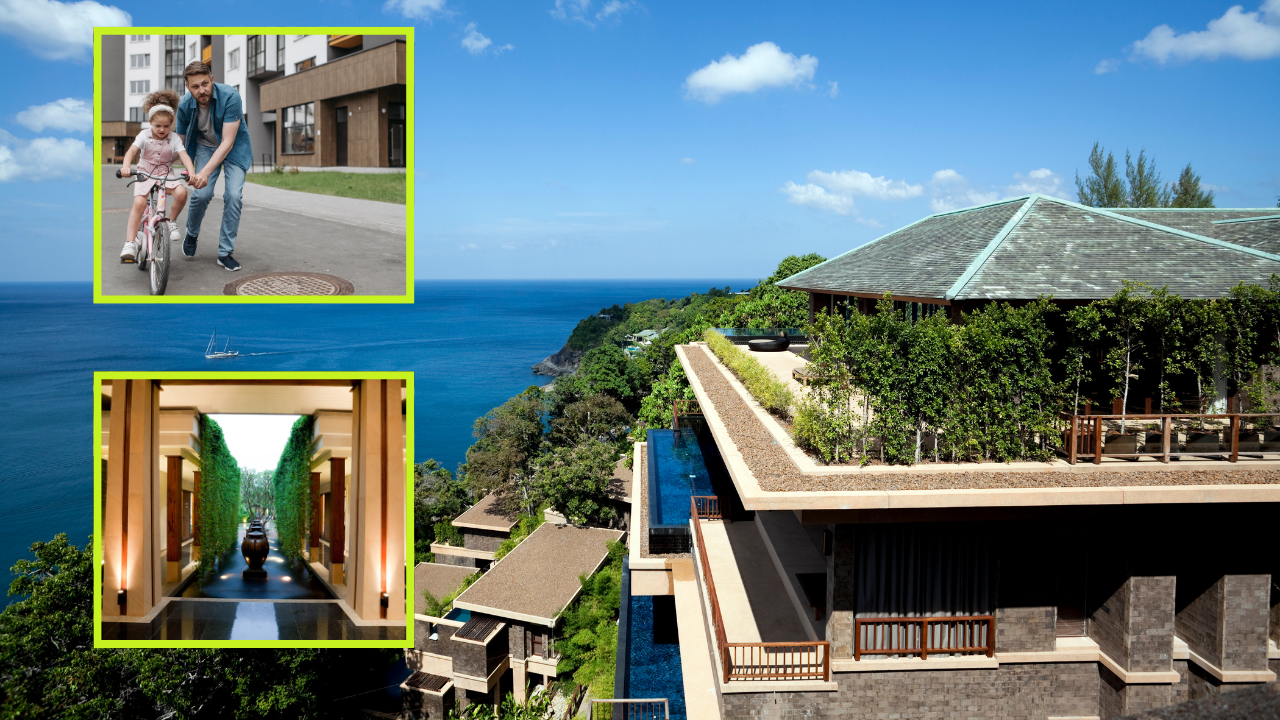
How to Support Thailand’s Green Hotel Movement
Booking one of these eco hotels in Thailand is already a step in the right direction. But here’s how to go further:
✅ Book Direct
Hotels retain more revenue when you avoid online travel agencies. That extra 15–30% can go into sustainability efforts.
✅ Ask Questions
Before booking, ask how they manage waste, energy, and sourcing. Demand transparency.
✅ Travel Light & Local
Avoid unnecessary packaging, take public transport when possible, and support local over imported.
✅ Offset Your Trip
Use services like MyClimate or IMPT.io to fund verified reforestation or clean energy projects.
Final Thoughts
Thailand’s eco hotels are proving that sustainable stays don’t require compromise. Whether you’re floating on the River Kwai, nestled in a bamboo jungle lodge, or enjoying urban green innovation in Bangkok, there’s a hotel on this list that aligns with your values and inspires responsible travel.
Choosing the right hotel is no longer just about amenities—it’s a statement of the kind of traveler you want to be.
Read this also: Top 100 Hotels With the Best Views – Part 14 | Breathtaking Escapes









